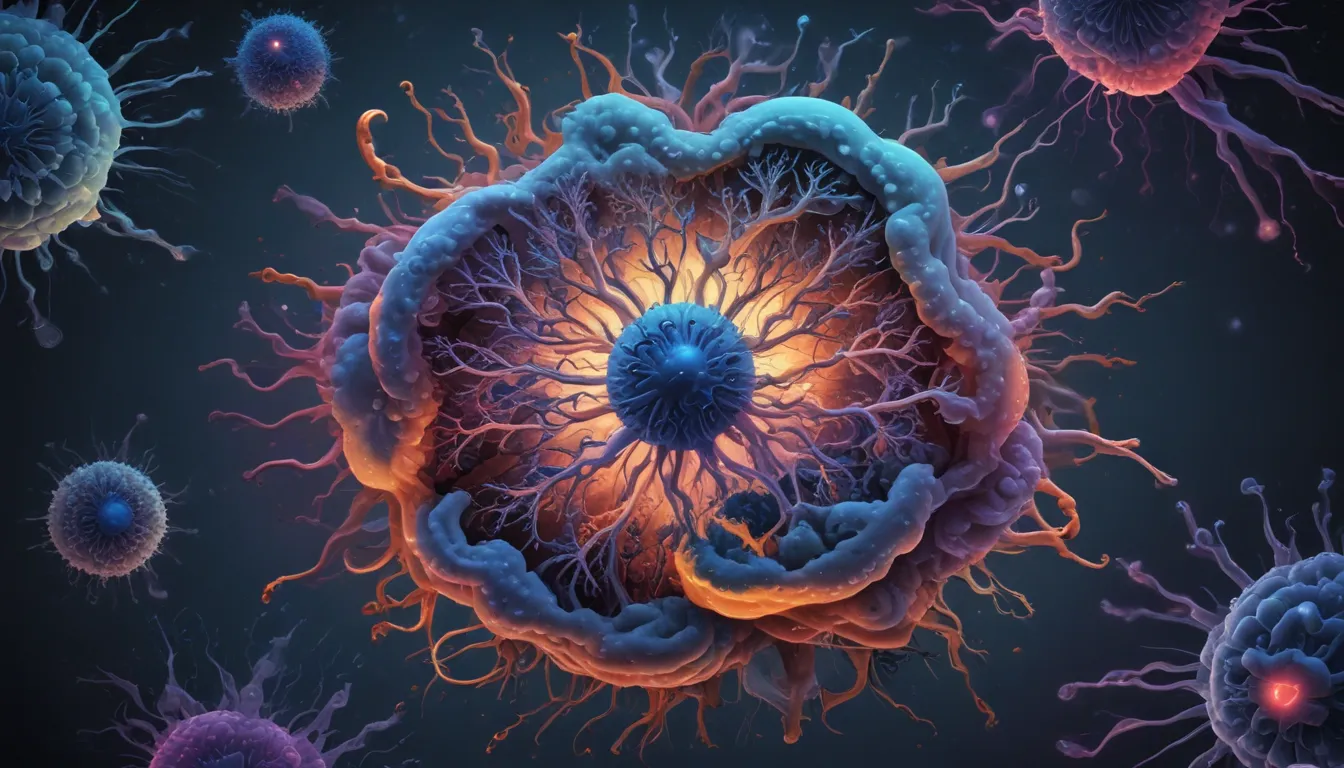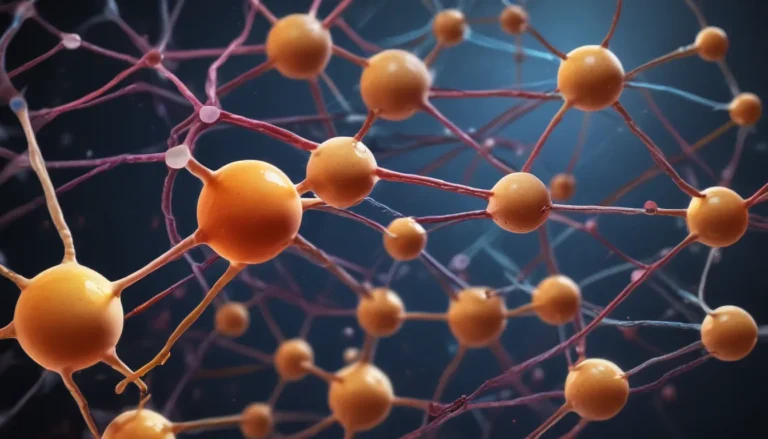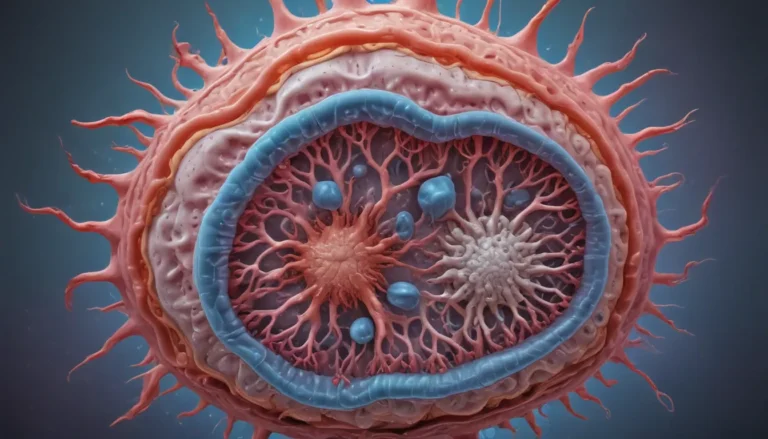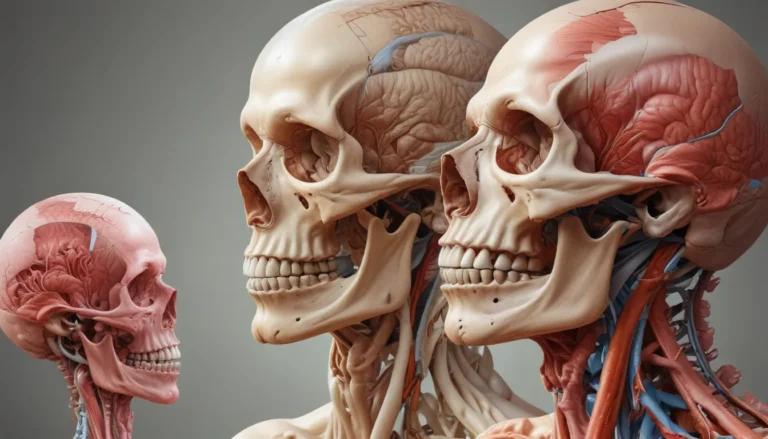A Note About Images: The images used in our articles are for illustration purposes only and may not exactly match the content. They are meant to engage readers, but the text should be relied upon for accurate information.
As we journey through life, our bodies undergo a myriad of changes, and one of the most captivating areas of study is the aging of our immune system, a process known as immunosenescence. This gradual decline in immune function with age can leave older individuals more susceptible to infections, diseases, and other health complications. In recent years, scientists have delved deep into unraveling the complexities of immunosenescence and its impact on overall health and wellbeing. From the role of inflammation to the influence of lifestyle factors, the study of immunosenescence has provided us with a treasure trove of fascinating facts that shed light on the intricacies of aging and immunity. In this article, we will embark on a journey to explore 20 captivating facts about immunosenescence, offering a glimpse into the enthralling world of biology, aging, and the immune system.
Understanding Immunosenescence: A Closer Look at the Aging Immune System
-
Immunosenescence and Its Impact: Immunosenescence refers to the gradual deterioration of the immune system as a result of the aging process. This decline can lead to increased susceptibility to infections, reduced response to vaccines, and a higher risk of developing chronic diseases.
-
The Role of the Thymus: The thymus, a key organ in the immune system responsible for the production and maturation of T cells, undergoes significant changes during immunosenescence. As we age, the thymus begins to shrink and lose functionality, impacting the body’s ability to mount an effective immune response.
-
Affecting Antibody Production: Immunosenescence can also impact the production of antibodies by B cells. These cells, crucial for recognizing and neutralizing pathogens, may become less efficient with age, resulting in decreased protection against infections.
-
Influence of Genetic and Environmental Factors: The decline in immune function associated with immunosenescence is influenced by both genetic and environmental factors. While aging is a natural process, certain genetic variations and lifestyle factors, such as diet and exposure to toxins, can accelerate immunosenescence.
-
Chronic Inflammation: Chronic inflammation, often observed in older individuals, is closely linked to immunosenescence. This persistent inflammation can impair immune function and contribute to the development of age-related diseases.
-
Impact on Innate and Adaptive Immune Systems: Immunosenescence affects both the innate and adaptive immune systems. The innate system, providing immediate defense, may become less responsive in older individuals, while the adaptive system, generating targeted responses, can become less efficient.
The Consequences of Immunosenescence: Vulnerability to Infections and Diseases
-
Increased Risk of Infections: The decline in immune function due to immunosenescence can heighten the risk of serious complications from infectious diseases, such as influenza and pneumonia. Older adults are particularly vulnerable to severe infections with a higher mortality rate.
-
Effectiveness of Vaccines: Immunosenescence can impact the effectiveness of vaccines, as the aging immune system may mount a diminished response. This is why certain vaccines, like the flu vaccine, are recommended annually for older adults.
-
Role of Telomeres: Telomeres, protective caps at the ends of chromosomes, play a role in immunosenescence. Shortening of telomeres with each cell division can affect immune cell function, contributing to immunosenescence.
-
Gut Microbiome Changes: Age-related alterations in the gut microbiome can influence immunosenescence. The composition of the gut microbiome, vital for immune system function, may shift with age, playing a role in immune aging.
Mitigating Immunosenescence: Strategies for Strengthening the Aging Immune System
-
Reduced Production of Immune Cells: A hallmark of immunosenescence is the reduced production of new immune cells, like T cells. This decline limits the body’s ability to mount an effective immune response.
-
Contribution to Autoimmune Diseases: Immunosenescence may contribute to the development of autoimmune diseases as the immune system becomes less regulated with age, increasing the risk of dysfunction and autoimmune conditions.
-
Impact of Lifestyle Choices: Regular exercise and a healthy lifestyle can help slow down immunosenescence. Embracing a balanced diet, physical activity, and stress reduction techniques can positively influence immune function.
-
Cross-Species Immunosenescence: Immunosenescence is not exclusive to humans; it also occurs in other animals like mice and monkeys. Studies have shown that aging animals experience similar changes in immune function.
-
Individual Variability: While immunosenescence is a common feature of aging, the rate and severity of immune decline can vary among individuals due to factors such as genetics and lifestyle.
Emerging Trends in Immunosenescence Research: Paving the Way for Enhanced Immune Function
-
Hormonal Influence: The role of sex hormones, like estrogen and testosterone, in immunosenescence is an area of ongoing research. Hormonal changes during aging may contribute to immune aging.
-
Boosting Immune Function: Strategies to boost immune function in older adults, including vaccination and lifestyle modifications, have shown promising results. Research continues to explore interventions to strengthen the aging immune system.
-
Bone Marrow Alterations: Age-related changes in the bone marrow microenvironment can affect immune cell production, impacting immunosenescence. Alterations in the bone marrow niche may impair immune cell generation.
-
Chronic Stress Impact: Chronic stress can accelerate the onset and progression of immunosenescence, leading to detrimental effects on immune function and contributing to premature aging of the immune system.
-
Therapeutic Advancements: The development of therapies targeting immunosenescence is a growing area of research. Scientists are exploring various approaches to rejuvenate the aging immune system and enhance immune function in older individuals.
In conclusion, immunosenescence presents a captivating window into the intersection of aging and immune function. By understanding the intricacies of this process, we can develop strategies to support the immune system as we age and promote healthy longevity. From lifestyle choices to vaccination efforts, there are ways to mitigate the effects of immunosenescence and enhance overall health and wellbeing. As research progresses in the field of immunosenescence, we can anticipate advancements that may delay or reverse the effects of immune aging, ushering in a new era of healthy aging for all. Let us continue to explore the wonders of immunosenescence and embrace the power of knowledge in promoting a vibrant and resilient immune system throughout the aging journey.
Was this page helpful? Our commitment to delivering trustworthy and engaging content is at the heart of what we do. Each fact on our site is contributed by real users like you, bringing a wealth of diverse insights and information. Trust in our commitment to quality and authenticity as you explore and learn with us.






